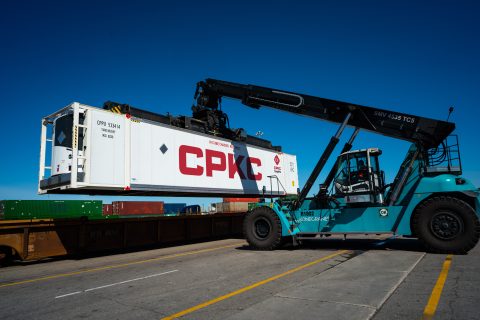Ukrainian Railways’ Chairman gets real about cooperation with Baltics

The rail cooperation between Ukraine and the Baltic countries “is a rather complex and long-term project”, said Evgeny Lyashchenko, Chairman of the Board of Ukrainian Railways (UZ). One of the fundamental points, he said, is that tariffs to reach the Baltic ports should be competitive with the ones to reach Polish ports. Lyashchenko stressed how it is necessary that the European Union implements subsidies to cover the differences in these tariffs.
Do you want to read the full article?
Thank you for visiting RailFreight.com. Become a member of RailFreight Premium and get full access to all our premium content.
Are you already a member?
Having problems logging in? Call +31(0)10 280 1000 or send an email to customerdesk@promedia.nl.




